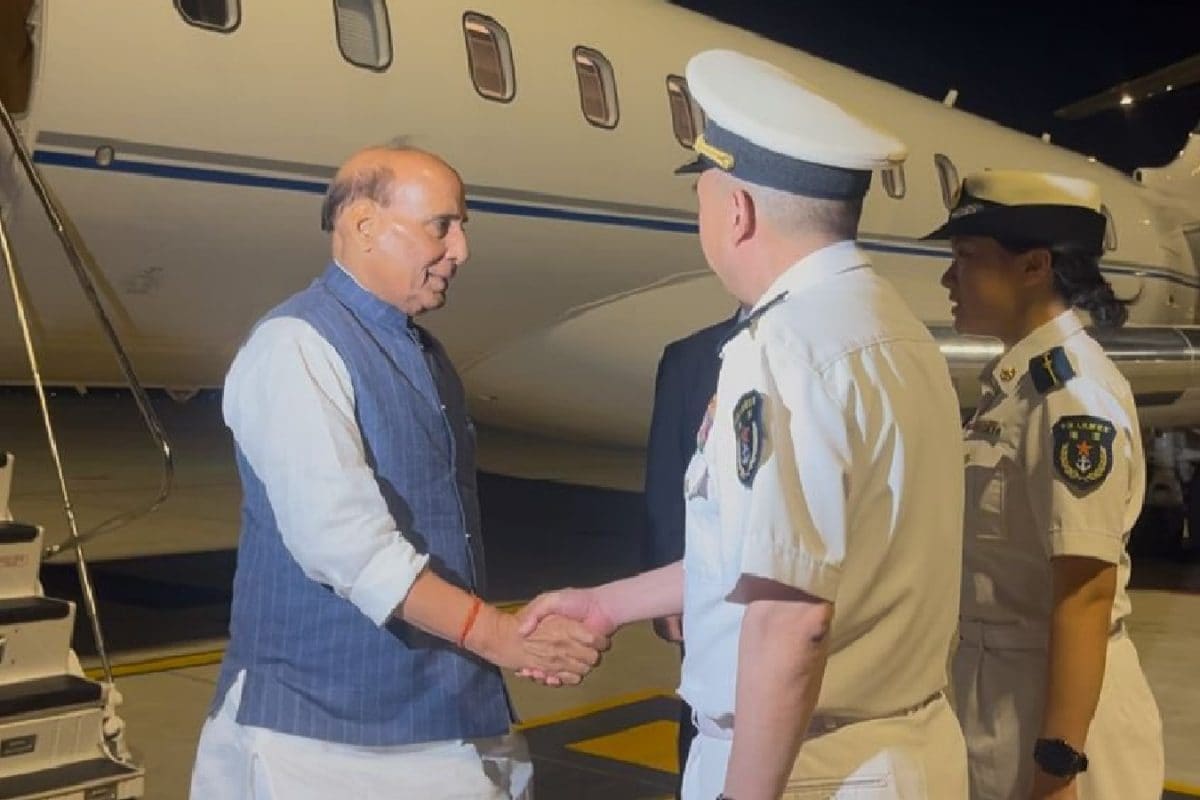

Defense Minister Rajnath Singh is in Qingdao, China, attending the Shanghai Cooperation Organisation (SCO) Defence Ministers' Meeting. This marks the first high-level visit by an Indian minister to China since the tensions along the Line of Actual Control (LAC) in eastern Ladakh in May 2020. The meeting, scheduled for June 25-26, will focus on regional and global security issues, counter-terrorism efforts, and enhanced cooperation among the defense ministries of SCO member states.
Singh is expected to hold bilateral discussions with his Chinese and Russian counterparts on the sidelines of the meeting. These discussions are likely to cover a wide range of topics, including the ongoing situation in West Asia, border tensions, counter-terrorism operations, and potential delays in the supply of weapons and spare parts.
During the SCO Defence Ministers' Meeting, Singh is expected to articulate India's vision for global peace and security. He will likely emphasize the importance of mutual respect, sovereignty, and territorial integrity, which are central to the SCO's framework. He is also expected to call for joint and consistent efforts to eliminate terrorism and extremism in the region, highlighting India's commitment to the SCO's founding principles.
India views the SCO as a vital platform for fostering multilateral cooperation in political, security, economic, and cultural spheres. Singh is likely to stress the need for expanded trade, connectivity, and economic integration within the bloc. India joined the SCO as a full member in 2017 and held the chairmanship in 2023.
The SCO currently comprises Kazakhstan, China, Kyrgyzstan, Pakistan, Russia, Tajikistan, Uzbekistan, Iran, Belarus, and India. China holds the Chair of the SCO for 2025 under the theme “Upholding the Shanghai Spirit: SCO on the Move.”
This visit occurs in the backdrop of recent events, including Operation Sindoor, India's targeted airstrikes on terror camps in Pakistan in response to the Pahalgam attack. Singh is likely to clarify that the strikes were a response to the attack, which resulted in the death of 26 people, and that the strikes targeted only terrorist camps.
The frequent interactions between officials from both India and China reflect a trend toward resuming engagement, strengthening communication, and rebuilding mutual trust. This follows the BRICS Summit in Kazan last year. Singh's visit signals support for the host country and demonstrates India's willingness to ease tensions and promote defense relations with China.
In addition to his Chinese counterpart, Singh is also expected to meet with Russian Defence Minister Andrey Belousov. Discussions with Belousov may include the issue of weapons and spare parts supplies, which have experienced delays due to the war in Ukraine. Meetings with defense ministers from Tajikistan, Kazakhstan, and Belarus are also possible.
Overall, Rajnath Singh's visit to China for the SCO Defence Ministers' Meeting underscores India's commitment to regional security, counter-terrorism efforts, and multilateral cooperation. The discussions are expected to pave the way for future engagements and contribute to the overall stability and development of the SCO region.